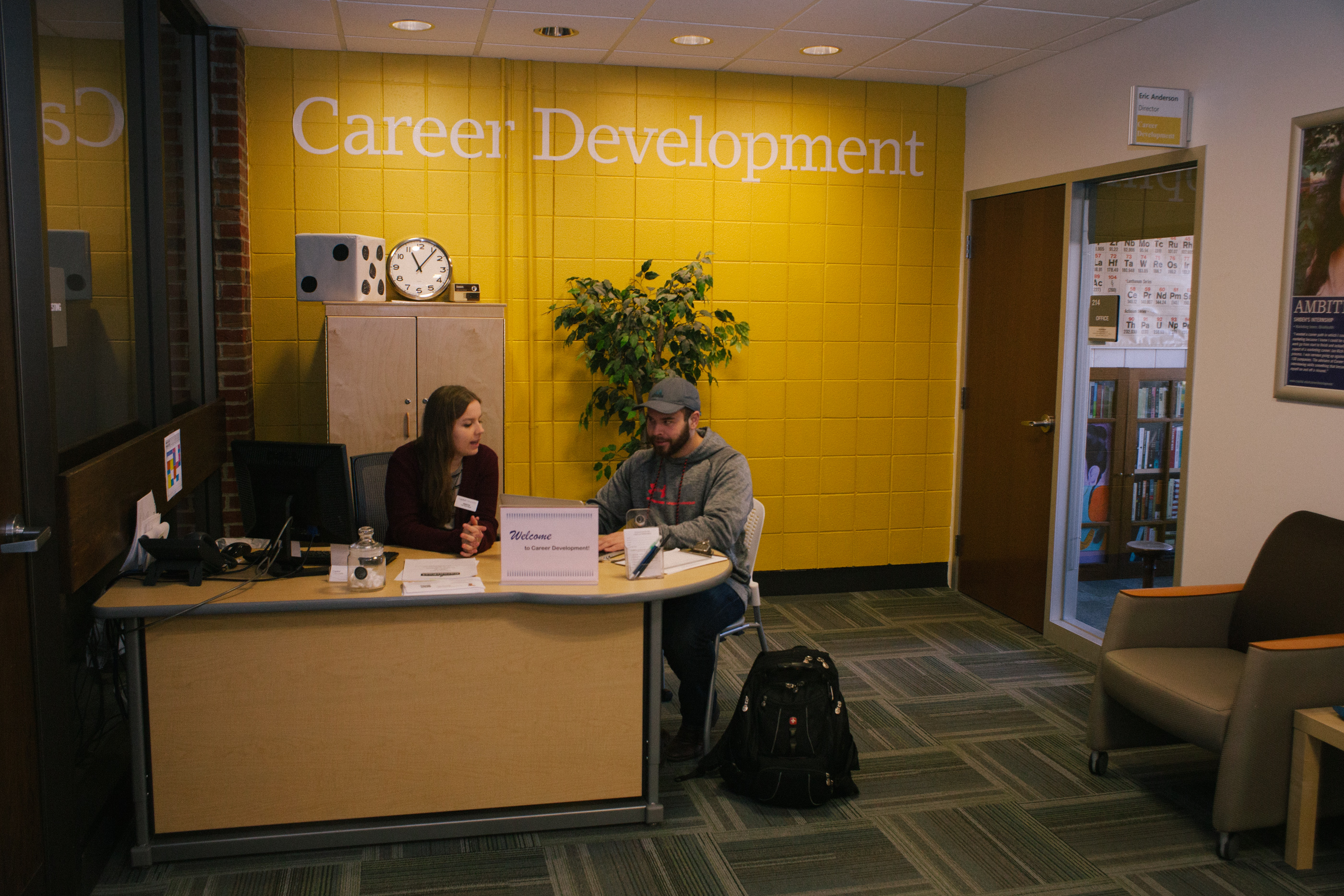Job hunting is stressful, and it can be hard to do so successfully.
One of the first key steps to finding a job is developing a solid resume that will help employers see what skills you’re bringing to the table.

Eric Anderson, director of Career Development, believes that good resumes should tell a story. There should be a structured flow of content that keeps the employer engaged while reading, which is especially true when you craft a resume that’s longer than one page.
It’s a misconception that a resume should strictly be one page. If done right, a second page is acceptable.
“If an employer gets to the bottom of the first page, and there’s still relevant and useful information, they’ll go to the next page,” Anderson said.
Don’t drag on too much though. A resume should be a snapshot of the unique qualities and abilities that you are bringing to the company you wish to work for.
Keep it fresh and interesting. Highlight skills that are relevant to the job position.
Many people may find it hard to fill their resume with enough information, such as relevant experiences. It’s best to think outside of the box for this part.
“If people are interested in something, they’ve learned that through something,” Anderson said. “Their interests have emerged from some experiences.”
Think about the job position you are going for. Why are you interested in that position and not another? What sparked that interest? Try to crawl deeper into the rabbit hole and you could potentially find relevant experiences.
Let’s say that you create an amazing resume and finally manage to land an interview. What is the interviewer paying attention to?

It’s not just about how well you communicate verbally, but also physically. An upright posture can convey attentiveness, while slouching can convey the opposite.
Anderson also noted that it is imperative to find ways to implement examples into your responses.
If an employer asks if you feel confident in your communication skills, you shouldn’t simply say yes, but instead incorporate an example of a past experience that has led you to develop those skills. For instance, it could be a unique group project that you did.
“The employer is able to imagine you doing those things that they’re asking about,” Anderson said. “So examples are huge, because they help create this picture.”
Creating a positive and professional image of yourself is crucial when landing the job you want. A key part of your image can be the type of presence you have on social media and employers are prone to look at that stuff.
“I think that employers know that it’s not okay,” Anderson said. “They really shouldn’t be looking at your social media to make judgments about you, but they still do it. It can give them hints.”

Even if you make your social media pages private, having an inappropriate profile picture can tip-off employers, so that’s something to keep in mind.
Anderson shared some insightful research data that highlights when employers view social media pages.
Twenty-two percent of employers view social pages after evaluating resumes. An additional 22 percent view them after the first interview. Thirteen percent view them right before the decision to hire. In total, 43 percent of employers don’t look at social media at all.
Job hunting can be stressful and induce a fear of the unknown, but with resources such as the office of Career Development, any student can find help with preparing themselves for the future.

